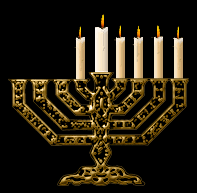
We are en route to Tula, home of the samovar and location of the Tolstoy estate. I am very excited to be going there, having been granted scholar’s rights to access the books in his library, a side benefit of the Hanukkah seminar for Jewish women and girls we have been requested to give there.
This first leg of the journey is a few days in Moscow is to get over the colossal jet lag inevitable with such a long flight. At a bed and breakfast apartment our host shows us to our room. We ask for a good place to put down the Torah we have with us, explaining it is a precious object. She shows us a bed where the Torah can rest for safe-keeping.
Given the high price of meat, my vegetarian-style of keeping kosher is less a curiosity than a relief to her. In the former Soviet Union anything can be made out of a potato. We have potato blini, potato kreplah more potato blini. By day three I receive a bowl of red beet borsht with potatoes with glee - hurray for variety. That third and last night of our stay, I step into the hall to go to the bathroom and almost step on our host. She is sleeping on the floor! Why?
At sunrise I find her in the kitchen. My translator will not arrive for several hours. Using gesture, I try to ask why she is sleeping on the floor. She keeps beaming at me. Why? Like most apartments in the region her place is very sparse. In the small living room there is one beautiful vase, a few family portraits, a shelf of poetry books, a samovar, lace curtains and several unmatched tea cups. She has rented us her bedroom it seems. But in a moment she will teach us more than methods of economic survival.
She places her finger to her lips, shhh, climbs onto a footstool and takes down the vase. Turning it over she removes newspaper and reaches in to retrieve and hold out on a quivering palm, a very old mezuzzah, the scroll still inside, golden and yet intact. While I turn it over in my hand and marvel at the moment, she returns bearing hammer and tacks, opens the front door and declares "Peristroika, da!" (Perestroika was the, then new, political movement allowing freedom of religion among other liberties after the dissolution of the Soviet Union.)
My translator takes this auspicious moment to arrive. From our host comes a story of her father’s time served in Siberia for being found with Jewish books hidden in a mattress. She tells of making a Hanukkah menorah out of a carved potato as a child, not for fun, but because it was the safest way to have one, being so easily destroyed by simply eating it. She told us of lighting her potato menorah in a carefully darkened room and watching the flames. "My father told me the light means freedom." she said.
She affixes the mezuzzah, reciting the blessing after me, syllable by syllable, crying and beaming at the same time. Now is the time for blessings. I bless her to enjoy her home in good health, happiness and safety. She shakes her head no during the translation of my blessing. "This is not the right melitva, "prayer" in Russian. She says you must teach her about the Torah," explains the translator. "She says she knows so little about the lights she has been protecting these many years. She wants that to be her blessing."